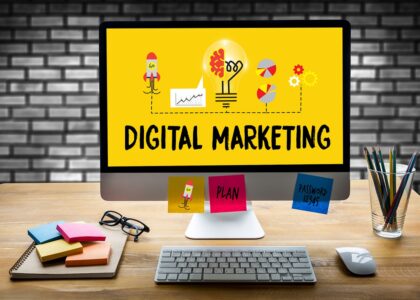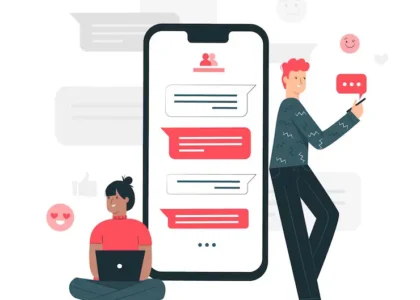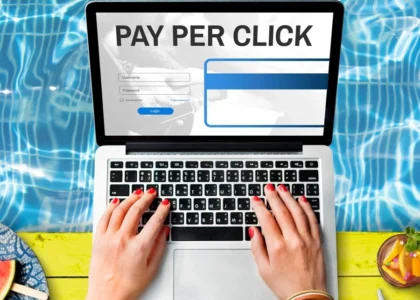Digital Marketing 101: Your Complete Guide to Success Online
In today’s digital age, businesses are increasingly shifting their focus from traditional marketing to digital marketing.
Are you aware of the vast potential that digital marketing holds for your business?
In this guide, we’ll delve deep into what digital marketing is, its various components, and how it can help you reach your audience effectively. Let’s get started!
Understanding Digital Marketing
Digital marketing encompasses all marketing efforts that use the internet or an electronic device.
It leverages various online channels to connect with customers where they spend most of their time—online.
The primary goal is to promote brands, products, and services to a targeted audience.
But what exactly does this involve?
The Importance of Digital Marketing
Digital marketing is crucial for businesses today for several reasons:
Wider Reach: Unlike traditional marketing methods, which are often limited by geography, digital marketing allows you to reach a global audience.
- Example: A local bakery can use social media to attract customers from neighboring towns and even tourists visiting the area.
Cost-Effective: Digital marketing often costs less than traditional marketing. You can run effective campaigns with a smaller budget.
- Example: Using social media ads can be more affordable than printing flyers or purchasing billboards.
Measurable Results: With digital marketing, you can track and analyze your campaigns in real-time.
- Example: Google Analytics allows you to see how many visitors clicked on your ad and what actions they took on your website.
Key Components of Digital Marketing
Digital marketing comprises several components, each with its unique role in achieving marketing objectives. Here’s a breakdown:
1. Search Engine Optimization (SEO)
SEO is the process of optimizing your website to rank higher in search engine results. It involves using targeted keywords, creating quality content, and building backlinks.
- Are You Aware? SEO is crucial because most online experiences begin with a search engine like Google.
Example: If you own a fitness studio, using keywords like “best fitness classes near me” can help you attract local customers.
2. Content Marketing
Content marketing involves creating and sharing valuable content to attract and engage a target audience.
- Are You Aware? Quality content not only builds trust but also positions your brand as an authority in your field.
Example: A travel agency could create blog posts about popular travel destinations, providing tips and itineraries to engage potential travelers.
3. Social Media Marketing
Social media marketing involves promoting your brand on platforms like Facebook, Instagram, and Twitter. It’s about building relationships and engaging with your audience.
- Are You Aware? Social media platforms have billions of users, making them a goldmine for marketers.
Example: A fashion brand can showcase its latest collection on Instagram, allowing users to share their styles and tag the brand.
4. Email Marketing
Email marketing is the process of sending targeted messages to a list of subscribers. It’s a powerful way to nurture leads and convert them into customers.
- Are You Aware? Personalized emails can lead to higher engagement and conversion rates.
Example: A bookstore can send out newsletters with book recommendations based on a user’s previous purchases.
5. Pay-Per-Click (PPC) Advertising
PPC is a paid advertising model where you pay each time someone clicks on your ad. This method can provide immediate traffic to your website.
- Are You Aware? Google Ads is one of the most popular PPC platforms available today.
Example: A local plumber can create targeted ads for emergency plumbing services, ensuring they reach people in need immediately.
6. Affiliate Marketing
Affiliate marketing involves partnering with other businesses or influencers who promote your products in exchange for a commission on sales generated through their referrals.
- Are You Aware? This method can expand your reach without upfront costs.
Example: A health supplement company might work with fitness influencers who review their products on social media.
7. Influencer Marketing
Influencer marketing utilizes individuals with a large following on social media to promote your products or services. This approach leverages the trust influencers have built with their audience.
- Are You Aware? Collaborating with the right influencer can significantly boost your brand visibility.
Example: A beauty brand can collaborate with makeup artists who demonstrate how to use their products on YouTube.
Digital Marketing Strategies
Now that we’ve covered the components, let’s look at effective strategies for digital marketing:
- Define Your Target Audience: Understanding your audience is key. Create buyer personas to guide your marketing efforts.
- Set Clear Goals: What do you want to achieve? Whether it’s brand awareness, lead generation, or sales, set specific, measurable goals.
- Create a Marketing Plan: Outline your strategies, budget, and timelines to keep your efforts organized and on track.
- Engage and Interact: Engage with your audience through comments, social media posts, and personalized emails.
- Analyze and Optimize: Use analytics tools to track your performance and optimize your strategies based on what works best.
Final Thoughts
Digital marketing is a powerful tool that can significantly enhance your business’s online presence.
By understanding its components and implementing effective strategies, you can reach your audience more effectively.
Are you ready to take your digital marketing to the next level? If you need assistance or professional services, don’t hesitate to contact us!
Let’s work together to achieve your marketing goals.





